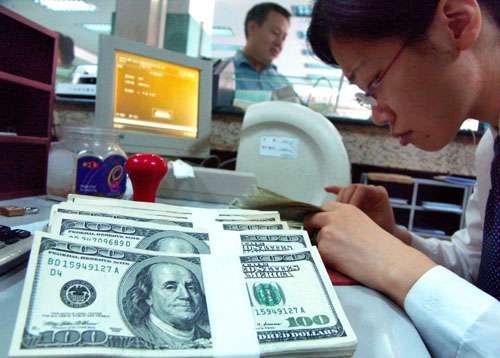Forex reserve not cause of inflation
 0 Comment(s)
0 Comment(s) Print
Print E-mail
Xinhua, July 29, 2011
E-mail
Xinhua, July 29, 2011
 |
|
China's foreign exchange reserves hit a historic high of 3.04 trillion U.S. dollars by the end of March this year, representing an increase of 24.4 percent year on year, the People's Bank of China (PBOC) said in April.? |
China's foreign exchange regulator said on Thursday that a buildup of foreign exchange reserves is not the direct or major cause of the country's current inflation woes.
The State Administration of Foreign Exchange (SAFE) made the remarks in response to criticism of its management of foreign exchange reserves. The regulator has released three statements on its website within the last two weeks defending the management of the country's forex reserves, which currently amount to $3.2 trillion.
The increase in forex reserves will lead to a greater supply of money in the market, the SAFE said. However, the central bank has soaked up newly-issued currency by raising its reserve requirement ratio for banks and selling central bank bills, it added.
The regulator attributed the current inflation situation to various factors, including price hikes for international commodities, increasing global inflation expectations and higher prices for labor, land and materials due to strong domestic investment demand.
"We don't pursue the acquisition of large-scale reserves and we don't pursue any long-term surplus in the balance of payments," the SAFE said.
China needs sufficient reserves to ensure its ability to repay debts and maintain financial security, the SAFE said.
The regulator pledged that it will take measures to reduce the pressure of capital influx and promote balanced international payments.
It also vowed to make its information disclosure process more transparent while remaining cautious, as international speculators are watching the situation closely to find opportunities for profit.





